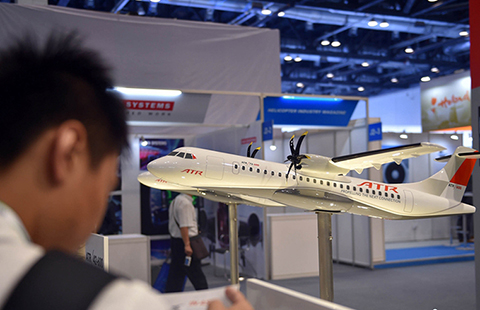Fed move eases strain on the yuan
By Chen Jia and Zhao Yinan (China Daily) Updated: 2015-09-19 09:57Delayed interest rate hike will prove beneficial as capital outflows may slow, say experts
Depreciation pressures on the yuan have eased after the United States Federal Reserve declined to raise interest rates from their record low of near-zero on Thursday, experts said on Friday.The move will also slow the pace of capital outflows from China and give the much-needed impetus for equities to recoup their losses in August, they said.
The People's Bank of China, the central bank, set the reference exchange rate to 6.3607 yuan against per US dollar on Friday, appreciating nearly 0.1 percent from Thursday. The benchmark Shanghai Composite Index rose 0.38 percent to 3,097.92 points.
The Fed said in a statement that concerns still remained about "restrained economic activity" hampering growth and further dragging down the already low inflation.
Vice-Minister of Finance Shi Yaobin said China will assess the effects from the Fed's decision, and take further measures based on the assessment.
"China could be one of the factors that influenced the Fed's decision, but it is not the most important one," said Shi in an interview with China Daily.
He stressed that as the largest economy, any move by the US will have great influence on the global market. He said that the US should pay more attention to the emerging economies before adjusting their policies.
Even at the current 0-0.25 percent benchmark interest rates, the Fed lowered its long-term outlook for the economy, and maintained its bias toward a rate hike sometime this year.
Richard Jerram, chief economist at Bank of Singapore Ltd, said the market impact of the Fed decision is likely to be relatively muted, as it is simply a delay rather than a fundamental reassessment of policy objectives. However, it could offer some short-term relief to emerging markets.
He said he believed December is the best candidate for a policy move, as the depreciation pressures on the Chinese yuan will be strong in the fourth quarter of the year.
Ren Zeping, chief economist at Guotai Junan Securities Co Ltd, expects the yuan value to remain stable in the short term.
"The Fed's decision will moderate hot money flows from China and ease the yuan's depreciation pressure. With a more stable value, there is greater possibility for the yuan to be included in the International Monetary Fund's Special Drawing Rights basket in November," he said.
According to Ren, anticipating a Fed rate hike, $67 billion of hot money flowed out of China in July. In August, it rose to $150 billion.
Chen Si in Hong Kong contributed to this story.
- New home prices increase in August
- China to deepen ties with ASEAN by upgrading free trade agreement
- Baidu levels up cloud services with greater security
- Huami launches second wearable Amazfit, a 'milestone product'
- Regulator fines companies for illegal trading
- Sino-French fund to invest in markets worldwide
- Purecomm startup looks to transform China's Ecommerce
- Fed's rate hike delay eases depreciation pressure on yuan















